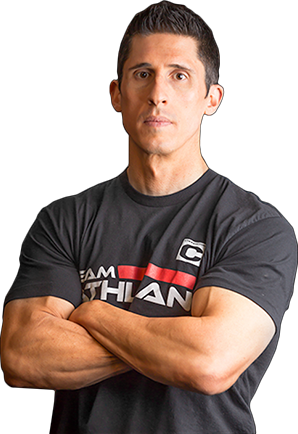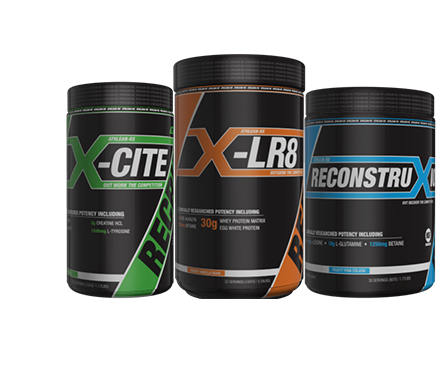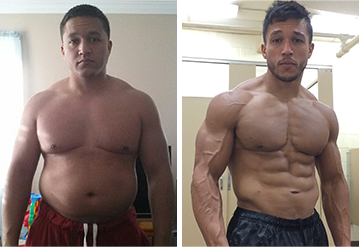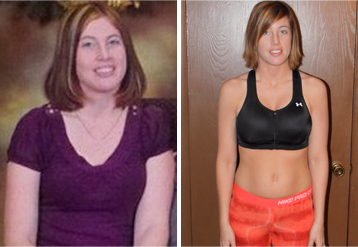 New here? Like Athlean-XX for Women on Facebook to stay up to date with new posts, great fitness and nutrition articles, motivations and inspirations, fitness challenges, Q&As, giveaways and more!
New here? Like Athlean-XX for Women on Facebook to stay up to date with new posts, great fitness and nutrition articles, motivations and inspirations, fitness challenges, Q&As, giveaways and more!
It’s a term that’s been garnering a lot of media attention recently. Some call it the newest eating disorder. Others believe it’s an anxiety disorder or a type of obsessive compulsive disorder. What is orthorexia?
Orthorexia is defined as an unhealthy obsession with eating healthy. Sufferers are so ‘health’ focused that they will only eat foods that they perceive to be ‘good’, ‘pure’ or ‘natural’. It was first described by Steven Bratman in his book Health Food Junkies: Orthorexia Nervosa: Overcoming the Obsession with Healthful Eating. He states that in extreme cases, this hyper focus on healthy eating can lead to malnutrition or death. In less severe cases, orthorexics try to follow a diet that due to its restrictiveness does not provide adequate nourishment.
What’s the difference between orthorexic and anorexic? While anorexics are obsessed with being thin, this isn’t the orthorexic’s concern. Rather, the orthorexic person is obsessed with feeling pure, healthy and natural. This can lead orthorexics to adopt such restrictive diet that it often permits them only to eat a few types of foods, and they can often only eat food they themselves prepare.
Although many medical professionals use the term to describe their patients, the American Psychiatric Association does not currently recognize orthorexia as a mental disorder, and does not include it in the DSM-IV (their extensive book of mental disorder diagnoses) nor will it include it in the DSM-V to be released in May 2013. While some psychologists accept the term as a separate diagnosis, others insist it’s just a manifestation of an underlying anxiety disorder or obsessive compulsive disorder.
 So, how does one distinguish between being focused on healthy eating and an unhealthy obsession with it? Chances are if you’re reading this article, healthy eating is an important part of your life. If you’re a person who’s trying to lose weight, or if your fitness goal is to build lean muscle tone, healthy food will be a major part of the equation. Perhaps you’ve eliminated certain foods from your diet. Perhaps you track what you eat. Does that make you ‘obsessed?’
So, how does one distinguish between being focused on healthy eating and an unhealthy obsession with it? Chances are if you’re reading this article, healthy eating is an important part of your life. If you’re a person who’s trying to lose weight, or if your fitness goal is to build lean muscle tone, healthy food will be a major part of the equation. Perhaps you’ve eliminated certain foods from your diet. Perhaps you track what you eat. Does that make you ‘obsessed?’
The answer is probably not. Orthorexia shares much in common with obsessive compulsive disorder, and it rules the lives of its sufferers. Rather than just counting calories or paying attention to portion size, orthorexics take are also obsessed with macronutrient and antioxidant contents, rawness or pureness, preparation methods, or the way their foods were grown. Orthorexics can limit their diet so much, at times to only raw vegetables, that they may lose too much weight and become emaciated and malnourished. This is because as the disease progresses, sufferers continue to exclude more and more foods from their diets believing that they are unhealthy.
Dr. Steven Bratman’s diagnostic criteria for orthorexia gives insight into just how much this disease rules sufferers’ lives. Here are a few of the “Orthorexia Quiz” questions Dr. Bratman shares in Health Food Junkies:
1) Do you spend more than 3 hours a day thinking about food?
2) Do you plan tomorrow’s food today?
3) Do you care more about the virtue of what you eat than the pleasure you receive from eating it?
4) Have you found that as the quality of your diet has increased, the quality of your life has correspondingly diminished?
5) Do you keep getting stricter with yourself?
6) Do you sacrifice experiences you once enjoyed to eat the food you believe is right?
7) Do you feel an increased sense of self-esteem when you are eating healthy food? Do you look down on others who don’t?
8) Do you feel guilt or self-loathing when you stray from your diet?
9) Does your diet socially isolate you?
10) When eating the way you are supposed to, do you feel a peaceful sense of total control?
A few key things stand out to me as I read through these questions. First, if you spend too much time thinking about food and don’t get any pleasure from eating, it’s a sign that something isn’t right. Second, a healthy diet shouldn’t have to mean that you can’t eat away from home or enjoy social activities. Third, if eating foods outside your diet make you feel guilt or self-loathing it’s a sign that you have an unhealthy relationship with food – whether you’re orthorexic or not. Finally, if your healthy diet is decreasing the quality of health and your life instead of improving it, something is definitely wrong. If reading this article leads you to suspect that you may have an unhealthy obsession with eating healthfully, please see an eating disorders specialist or a doctor.
At Athlean-XX for Women, we believe that healthy eating and fitness should fit naturally into your life. Rather than strictness and guilt, our experience is that FLEXIBILITY is the key to a lifelong change that becomes part of your life without taking over your life. While our Athlean-XX for Women Nutrition Plan does include a set 90 day meal plan for those who want it, you have the alternative of eating based on a set of flexible guidelines instead. We recommend women eat small well-rounded meals 5 – 6 times per day to help boost metabolism and get adequate nutrition for our challenging 30 minute workouts. Our Athlean-XX for Women Fitness Plan is flexible too – it can be done at home with our DVDs or at the gym with our Girl on the Go Workout Cards. If you’re looking for a healthy lifelong nutrition and fitness solution, we encourage you to give Athlean-XX for Women a try.
And finally, if you’d like to stay up to date with the AthleanXXforWomen.com blog, then please like us on Facebook, follow us on Twitter and follow us on Pinterest.
P.S. We are a growing community dedicated to and passionate about realistic fitness and nutrition for REAL women. If you enjoyed this post please feel free to share on Facebook, Twitter and Pinterest. It would be incredibly appreciated!










